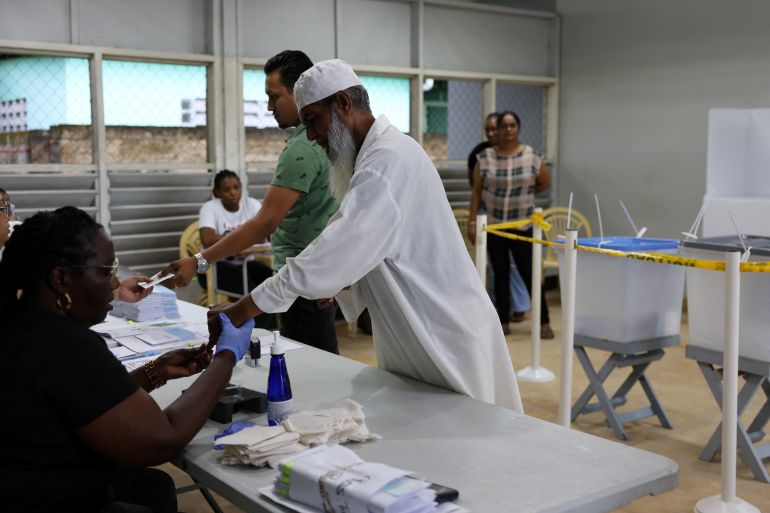The Gran Morgu project may transform Suriname’s economy, rivalling oil-rich neighbour Guyana by 2028, officials predict.
Voters in Suriname, which is on the cusp of a much anticipated oil boom, have begun to elect a new parliament, which will subsequently choose the next president of the smallest nation in South America.
Sunday’s elections have already been marked by fraud allegations and have seen little debate about what the next government, which will hold power until 2030, should do with income from the offshore oil and gas Gran Morgu project. It is to begin production in 2028.
Experts said Suriname, a country beset by poverty and rampant inflation, is projected to make billions of dollars in the coming decade or two from recently discovered offshore crude deposits.
The project, led by TotalEnergies, is Suriname’s first major offshore effort. The former Dutch colony, independent since 1975, discovered reserves that may allow it to compete with neighbouring Guyana – whose economy grew 43.6 percent last year – as a prominent producer.
“It will be a huge amount of income for the country,” President Chan Santokhi told the AFP news agency this week. “We are now able … to do more for our people, so that everyone can be part of the growth of the nation.”
Santokhi is constitutionally eligible for a second term, but with no single party in a clear lead in the elections, pollsters are not predicting the outcome.
The party with the most seats will lead Suriname’s next government, likely through a coalition with smaller parties, but negotiations and the choosing of a new president are expected to take weeks.

Fourteen parties are taking part in the elections, including Santokhi’s centrist Progressive Reform Party and the leftist National Democratic Party of deceased former coup leader and elected President Desi Bouterse.
Also in the running is the centre-left General Liberation and Development Party of Vice President Ronnie Brunswijk, a former rebel who fought against Bouterse’s government in the 1980s.
Provisional results are expected by late Sunday.
Suriname – a diverse country made up of descendants of people from India, Indonesia, China, the Netherlands, Indigenous groups and enslaved Africans – will mark the 50th anniversary of its independence from the Netherlands in November.
Since independence, it has looked increasingly towards China as a political ally and trading partner and in 2019 became one of the first Latin American countries to join the Asian giant’s Belt and Road infrastructure drive.
United States Secretary of State Marco Rubio made a stopover in Suriname in March on a regional tour aimed at countering China’s growing influence in the region.
More than 90 percent of the country is covered in forest, and it is one of few in the world with a negative carbon footprint.
Santokhi insisted this status is not in danger and Suriname can use its oil windfall “for the transition towards the green energy which we need, also because we know the fossil energy is limited”.
“It will be gone after 40 years.”